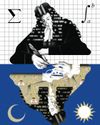
Then the Washington Post unWhen veiled the slogan "Democracy Dies in Darkness," on February 17, 2017, people in the news business made fun of it. "Sounds like the next Batman movie," the New York Times' executive editor, Dean Baquet, said. But it was already clear, less than a month into the Trump Administration, that destroying the credibility of the mainstream press was a White House priority, and that this would include an unabashed, and almost gleeful, policy of lying and denying. The Post kept track of the lies. The paper calculated that by the end of his term the President had lied 30,573 times.
Almost as soon as Donald Trump took office, he started calling the news media "the enemy of the American people." For a time, the White House barred certain news organizations, including the Times, CNN, Politico, and the Los Angeles Times, from briefings, and suspended the credentials of a CNN correspondent, Jim Acosta, who was regarded as combative by the President.
"Fake news" became a standard White House response-frequently the only White House response to stories that did not make the President look good. There were many such stories.
Suspicion is, for obvious reasons, built into the relationship between the press and government officials, but, normally, both parties have felt an interest in maintaining at least the appearance of cordiality. Reporters need access so that they can write their stories, and politicians would like those stories to be friendly. Reporters also want to come across as fair and impartial, and officials want to seem coöperative and transparent. Each party is willing to accept a degree of hypocrisy on the part of the other.
With Trump, all that changed.
この記事は The New Yorker の February 06, 2023 版に掲載されています。
7 日間の Magzter GOLD 無料トライアルを開始して、何千もの厳選されたプレミアム ストーリー、9,000 以上の雑誌や新聞にアクセスしてください。
すでに購読者です ? サインイン
この記事は The New Yorker の February 06, 2023 版に掲載されています。
7 日間の Magzter GOLD 無料トライアルを開始して、何千もの厳選されたプレミアム ストーリー、9,000 以上の雑誌や新聞にアクセスしてください。
すでに購読者です? サインイン

MEAN TIME
“Hard Truths.”

ENLIGHTEN ME
The secret beauty of mandalas.

THE BEST OF THEM
His was a genius for the ages. Will Gottfried Leibniz ever get his due?

DEATH CULT
Yukio Mishima’ tortured obsessions were his making—and his unmaking.

Prophecy
The night of Dev’s twenty-second birthday, he was invited to sit with the elders after dinner.

A TALE OF TWO DISTRICTS
Lauren Boebert and Colorado’s red-blue divide.

THE TIKTOK TRAIL
Andean migrants draw others to the U.S. with videos depicting themselves as living the American Dream.

LOVE AND THEFT
Did a best-selling romantasy novelist steal another writer's story?

OUR NEW TWO-FACTOR AUTHENTICATION SYSTEM
Our two-factor authentication system is expanding because text messages and e-mailed codes are becoming less secure. Also, we’re committed to making sure your log-in process is more of a hassle than it needs to be.

STILL PROCESSING
Why is the American diet so deadly?